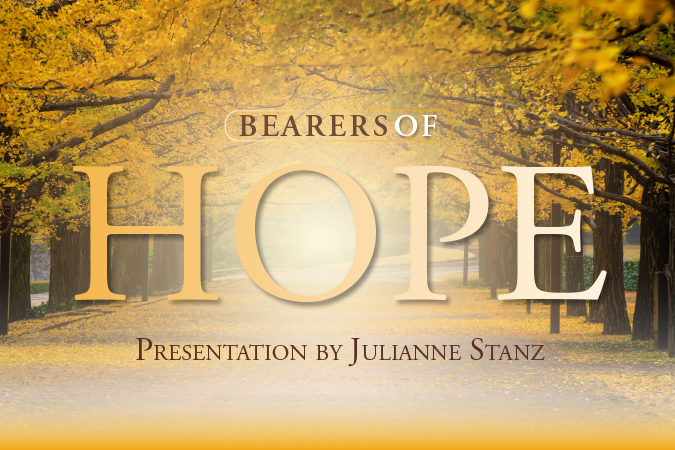This is the final article in a series exploring the Beatitudes as they relate to being a catechist.
“Blessed are those who are persecuted for righteousness’ sake, for theirs is the kingdom of heaven.” (Matthew 5:10)
Happy are the catechists who live in hope, for they will always find God at their side.
I asked my ninth-grade class: “Do you want to know what I really get out of our faith?”
That got their attention.
“Life is hard,” I said, pointing at the crucifix, “but no matter how hard it gets, there’s always hope. Even when everything seems hopeless, God is with me. And in the end, all will be well.”
As soon as I uttered those words, my inner critic ruthlessly chastised me. This critic is always the cruelest persecutor I face, using my insecurities to undermine my confidence. It has one goal: to convince me that I am not smart enough, pious enough, or engaging enough to be a catechist. It would like nothing more than for me to walk away from this ministry in shame. And this critic is single-minded in pursuing this goal.
Instead of fighting this critic by building my confidence (which often leaves me to trust in my own abilities rather than God), I respond with hope. Here are three ways I can be a hope-filled catechist:
- I trust that God is with me. I grow in confidence not by trusting in myself, but in trusting God. Christian hope, Pope Francis explains, is “having the certainty that I am walking toward something that is, not something that I hope may be.” (On Hope, 64) When I recognize that the Lord is with me as I walk toward him, I live in hope, and the words “we will be with the Lord forever” (1 Thessalonians 4:17) become a prayer that echoes in my heart.
- I offer hope to others. “In the Christian life, we are called to spread hope by supporting and encouraging one another,” says Pope Francis. (On Hope, 97) Yes, I offer support, comfort, and guidance to the young people in my classroom, but I also try to find ways to support and encourage my fellow catechists.
- I never forget to smile. Life is hard, which is why smiling is so important. “Only hope brings a smile,” says Pope Francis. “It is the hopeful smile in the expectation of finding God.” (On Hope, 4) Hope allows me to find God everywhere I look, even in the most unexpected places, such as an unruly ninth-grade faith formation class. If this doesn’t bring a smile to my face, nothing will.
“Hope is a helmet,” says Pope Francis. (On Hope, 63) Hope protects me from the beatings from my inner critic. When I live in hope, my insecurities and shortcomings cannot be used as a weapon against me. When I live in hope, I know that God is at my side, walking with me through the Kingdom of Heaven and toward its completion.
How do you experience hope as a catechist? How do you share hope with the young people in your class or your fellow catechists?




What about those suffering with depression?